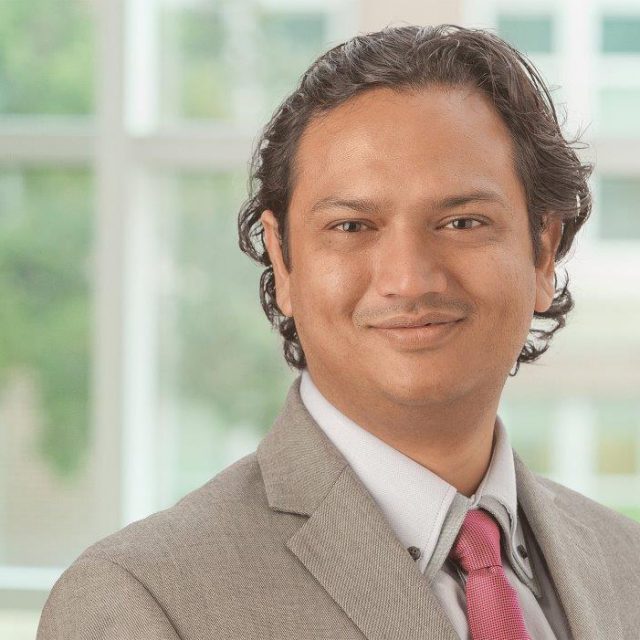
Danish Bhatti: All right. Let’s try again.
John Bertoni: You’re going to use your other system.
Danish Bhatti: Yeah
John Bertoni: I find like yesterday when I wanted to say a few things in the middle of the night. I had an epiphany. That means all of a sudden something becomes clear. So in the middle of the night you might say what a great idea. You just had in the morning you listen. You can’t make any sense of it. It’s like I just had this fantastic dream. Try to write it down and the next morning you’re looking at scribble that looks like a Parkinson’s you know really.
Danish Bhatti: You can read it or if you read it, it does not make sense like the idea don’t make sense.
John Bertoni: Either way. You can’t read it or if you can read it. you say “What?” you know because you’re half asleep you may not be out of sleep. So. You were just saying that you’re trying to slow down but you’re speeding up.
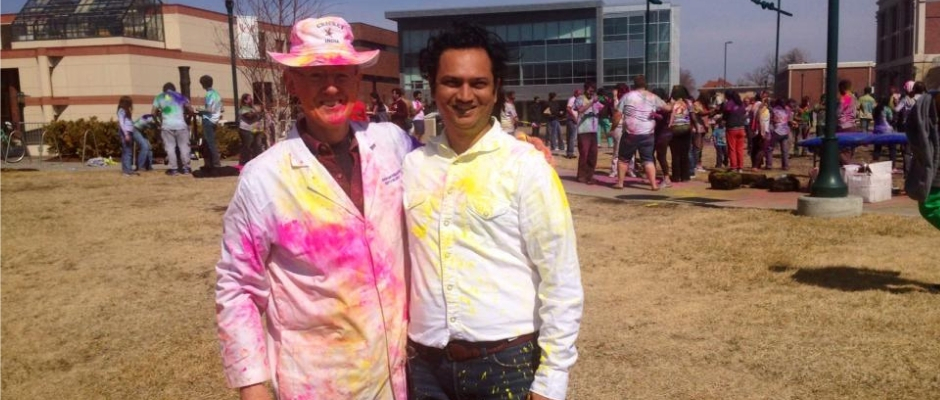 Danish Bhatti: I think what I mean is that I’m slowing down in the sense of I’m becoming more focused on what I want to do. And it’s something I want to talk a little bit more about. But as I am trying to focus into things that I want to do. The speed that at which I am progressing in those things that’s where I’m picking up I’m trying to get rid of things that adds inefficiencies. I think we’ve talked about one inefficiency before it was task switching that if you’re doing one task and you’re in the middle of it you switch to the task you have to go back to the background and review where you’ve been unless you’re starting over and then. But the problem is if you leave it in the middle and then you come back to it a few days later you know if you come back it too soon enough the same day maybe you’re fine. But if you come back to a few days later you’re not sure where you were and what the flow of that part was. So you have to pick it back up. And that was one inefficiency and then the other inefficiency that I feel is that in the past I used to waste too much time in trying to get it done without having the proper tools. I think if you use properly, tools that are designed to make your job easier. If you have the proper mic if you have the proper pen or recording camera or proper setup or proper space; speeds up the things that you can get done within a few days or few weeks especially when you combine it with focus if you’re focused at it and you know you’re going to just get it done. So to give you an example let’s say I decide I’m going to record some podcast. So I immediately start looking what tools I need and then I go to that sound recording place in the library and do some testing and do some test recording and do some editing at home. I soon realize that it’s wonderful it works awesome but it’s so far and it will require a special scheduling and special time out of my time and your time and Diego’s time to get it done and I say okay well what do you need. I need a good recording mic. So I look up and I find a good recording mic for a 120 bucks. And now if I go through crystal (admin) and have it bought through department it will take another two weeks to get it done. I don’t have time like that. I say to hell with a hundred bucks I’ll just go and on the way back home that day I wouldn’t waste time on picking up which one to buy. I say okay What’s my budget 100 bucks. Okay. What’s the best I can get around that time. I find it quickly within a day. You used to take me weeks to find a good mic in the past. Now I don’t waste time like that anymore. And then on the way back home I stop at Best Buy and I just you know pick up the mic and say okay it’s 10 bucks cheaper at Amazon but I don’t waste time for waiting for Amazon. I wanna get things done and I pick up that mic that night I record some podcast that within two days I record some lectures within next week. I’ve recorded the Diego’s podcast, your podcast and I already have everything done. I would not have even selected a mic in my past life that fast and let alone if I go through crystal, I wouldn’t have a mic to get things done. So I don’t want to waste time on these inefficiencies anymore and I’ll just say okay this is what I need to do this is and I’m gonna just get this done now. It’s not like I have an idea of podcasts and I’ll think about it. Once I come back from Pakistan next month or something. If I have an idea and I truly believe in it and it fits in with my focus. I’m just gonna go and get it done. You know I will worry afterwards. How would the recording look, I want to get music and how would I edit it. I learned it as I do or go through and even if it’s not the best piece possibly. Who cares. At least I’ve just got to get started on it and I we keep getting better as I do it more and more often rather than being perfect and doing it first and then trying to do it. So you know I’ll just start with the where I am right now with the tools I have and I keep building up on tools and keep building up on work flow and keep building up on my expertise and do it better and better. That’s what I meant was I’m speeding up which I’m slowing down and focusing on what I need to do.
Danish Bhatti: I think what I mean is that I’m slowing down in the sense of I’m becoming more focused on what I want to do. And it’s something I want to talk a little bit more about. But as I am trying to focus into things that I want to do. The speed that at which I am progressing in those things that’s where I’m picking up I’m trying to get rid of things that adds inefficiencies. I think we’ve talked about one inefficiency before it was task switching that if you’re doing one task and you’re in the middle of it you switch to the task you have to go back to the background and review where you’ve been unless you’re starting over and then. But the problem is if you leave it in the middle and then you come back to it a few days later you know if you come back it too soon enough the same day maybe you’re fine. But if you come back to a few days later you’re not sure where you were and what the flow of that part was. So you have to pick it back up. And that was one inefficiency and then the other inefficiency that I feel is that in the past I used to waste too much time in trying to get it done without having the proper tools. I think if you use properly, tools that are designed to make your job easier. If you have the proper mic if you have the proper pen or recording camera or proper setup or proper space; speeds up the things that you can get done within a few days or few weeks especially when you combine it with focus if you’re focused at it and you know you’re going to just get it done. So to give you an example let’s say I decide I’m going to record some podcast. So I immediately start looking what tools I need and then I go to that sound recording place in the library and do some testing and do some test recording and do some editing at home. I soon realize that it’s wonderful it works awesome but it’s so far and it will require a special scheduling and special time out of my time and your time and Diego’s time to get it done and I say okay well what do you need. I need a good recording mic. So I look up and I find a good recording mic for a 120 bucks. And now if I go through crystal (admin) and have it bought through department it will take another two weeks to get it done. I don’t have time like that. I say to hell with a hundred bucks I’ll just go and on the way back home that day I wouldn’t waste time on picking up which one to buy. I say okay What’s my budget 100 bucks. Okay. What’s the best I can get around that time. I find it quickly within a day. You used to take me weeks to find a good mic in the past. Now I don’t waste time like that anymore. And then on the way back home I stop at Best Buy and I just you know pick up the mic and say okay it’s 10 bucks cheaper at Amazon but I don’t waste time for waiting for Amazon. I wanna get things done and I pick up that mic that night I record some podcast that within two days I record some lectures within next week. I’ve recorded the Diego’s podcast, your podcast and I already have everything done. I would not have even selected a mic in my past life that fast and let alone if I go through crystal, I wouldn’t have a mic to get things done. So I don’t want to waste time on these inefficiencies anymore and I’ll just say okay this is what I need to do this is and I’m gonna just get this done now. It’s not like I have an idea of podcasts and I’ll think about it. Once I come back from Pakistan next month or something. If I have an idea and I truly believe in it and it fits in with my focus. I’m just gonna go and get it done. You know I will worry afterwards. How would the recording look, I want to get music and how would I edit it. I learned it as I do or go through and even if it’s not the best piece possibly. Who cares. At least I’ve just got to get started on it and I we keep getting better as I do it more and more often rather than being perfect and doing it first and then trying to do it. So you know I’ll just start with the where I am right now with the tools I have and I keep building up on tools and keep building up on work flow and keep building up on my expertise and do it better and better. That’s what I meant was I’m speeding up which I’m slowing down and focusing on what I need to do.
John Bertoni: Well I’d say first congratulations on doing something rather than analysis paralysis where you never find a perfect solution. You want to be let’s say the perfect is the enemy of the good. If you wanted to be perfect you’re doomed to fail and you will get nowhere. So if I say I want to go by horseback from here to some mountains. So I’ve got to find now the best horse and I’ve got to find the best map and I get you know you spend a year you could have gone there and back in a couple of weeks but a year you’ve gone nowhere so brilliant. So you’re saying I don’t want to waste any time and you want to begin now and I think that’s almost always an excellent thing to do. If you say well I want to learn how to do brain surgery let me just go in and operate on someone’s brain. No no wait a minute. You’ve got to think about that. You’ve got to know you gotta get training certified all that stuff. But yeah you have some accomplishments and once you have that then you are reinforced in your goal. So I’m writing down some of your ideas here on this left piece of paper and on the right some of mine and you said to start I’m speeding up while I’m slowing down. And I wrote down I have to learn to say no to say yes which is kind of the same thing. This focus is key. I agree with that task switching is inefficient when you’re on a roll when you’re getting something done. When you’re amazed even though it’s not perfect it’s really pretty good. Then it’s kind of you get into the flow state that book I was talking to you about. Just hard to read. It’s hard to get into the flow of the book but it’s worth every bit you can do. If you’re on a roll. If you’re getting it done stay with it. Something will get done and then you improve as you go. So I think you’re doing the right thing. Sometimes there are better ways but you’ll learn as you go. Besides that you get experience.
My question When I’m doing such things is I want to step back and say OK what are the real important things in my life. And I think I need to put the priorities in first and you know Stephen Covey is good at that. He says there are urgent things that are unimportant and important and there are important things that are urgent and not urgent.
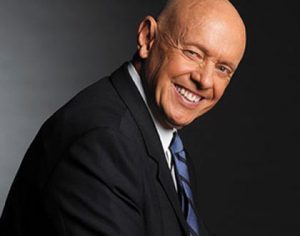
So he has a matrix where he looks about what’s important and then on the other axis is what’s urgent. And of course if somebody is lying on the floor and you come upon them. You have to do something urgently and what’s important and do the ABC and save her life. But we have a lot of things that are important that we tend to put on a lot of people like me might put off this building of course for the residents. But you know that’s an important thing and you’re going to just dive in. So I think that’s great. The day to day stuff that gets in the way is my problem and I’m happy. I don’t keep up with my e-mails and I need to find a way. I think you do it when you have a moment. You go through your e-mails quickly. I need a program where I can in a sense push the email to the left to dump it, to the right to save it, down to I don’t know. Do something else with it in between you know I’ll look at it later or something. So that I can quickly go through it right now on my phone. It’s hard to read even on my computer. Should it be a way to look at 10 of these on the big screen and you can just tap. You know I’m not just deleting all these things and there ought to be a delete and unsubscribe. Because I got something today that I want to unsubscribe and it took me to another site. It’s some sort of a bogus or I don’t think it’s a legit Web site but they’re trying to sell me something. So I need a younger person’s advice or more savvy with emails and things.
Danish Bhatti: Well I have some thoughts about all that you’ve been saying. I’m going to start by saying this. You used to tell me in the past that you think you know you have this e-mail problem you can’t keep up with it and you know I used to you know unthinkably agree with it without paying too much attention to it but I guess what I wanna say is that I don’t think not responding to email is a problem and I’m going to go into this core details of what’s been going through in my mind over the last few weeks to prove that not being able to respond to emails. I have eighty six emails I need to reply to and I have not. I have emails from two months ago I have not replied to because no they’re not. This is an email. And they just take away my focus while I’m going to waste this time when it’s not important to me right now. If it ever becomes important to me I’ll come back to it. If it never becomes important me. Well Okay so what.
John Bertoni: I wish our president would have a filter like that.
Danish Bhatti: For me the top most important thing is one focus. A burning desire to get one thing done. And I don’t have space for anything else until that is done. And I don’t have space for four rooms or four corners or a list of things I actually do. There is no list of thing. There’s only one thing to do on my to do list. That’s it. The idea that has been becoming a common theme among many people who are important to me which is the idea of focus.
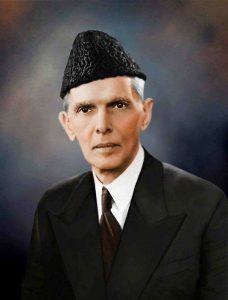
This idea that I’ve been seeing in random order I’m going to tell a few things that inspired me. So for example I was reading this book on Jinnah the founder of Pakistan and you know you had many good and bad things about him but one thing he said. So the main point was that in 1935 he made this large speech to the Muslim League which was a Muslim Party of India. And this is something that I read in that speech stuck with me. And he says that I’ve heard this idea before. But the way that he said it. And the point in the history when he said it means a lot. You know he says that I don’t remember his exact words but what he was saying was that when you are trying to make a decision, think really hard. Look at every aspect of it. Ask everyone and ask yourself and then make your choice. But once you have made a choice once you have decided you have to give it everything that you’ve got. There is no stepping back. There is no second guessing it. There’s no questioning it doesn’t matter what doubts have been created what new information comes into light. That is your focus. You need to just burn it into the ground no matter what now you have given. You have to give your life to it. And you know the bigger more challenging the idea the harder you have to push. And then you can not second guess yourself after. 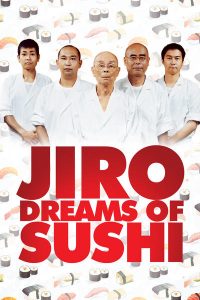 That is the same thing that I heard in this documentary Jiro Dreams of Sushi where this 90 years old the only Michelin 3 star sushi chef in the world who says that once you; he’s 90 years old, he became sushi boy at age 14 or 15 when he ran away from his home. And he says the same thing. He says once you pick up your profession you have to give everything to it. You cannot question it. You cannot change your mind. You cannot play around and things like that and you have to give everything to it. And that was the time a few years ago when towards the end of my residence I was thinking you know do I want to be an entrepreneur, do i want to do this, do that, become a neurologist. But listening to that and I said, click me its like you know I have come to a certain point, for whatever reason. But this is what I’ve got now. I should now decide that I’m going to give everything I have to neurology and movement disorders. And it doesn’t matter. You know why movement disorders? Yes I will come up with reasons. Yes I think I do. But the main point is it doesn’t matter what the actual reason was, why you’re in movement disorders.
That is the same thing that I heard in this documentary Jiro Dreams of Sushi where this 90 years old the only Michelin 3 star sushi chef in the world who says that once you; he’s 90 years old, he became sushi boy at age 14 or 15 when he ran away from his home. And he says the same thing. He says once you pick up your profession you have to give everything to it. You cannot question it. You cannot change your mind. You cannot play around and things like that and you have to give everything to it. And that was the time a few years ago when towards the end of my residence I was thinking you know do I want to be an entrepreneur, do i want to do this, do that, become a neurologist. But listening to that and I said, click me its like you know I have come to a certain point, for whatever reason. But this is what I’ve got now. I should now decide that I’m going to give everything I have to neurology and movement disorders. And it doesn’t matter. You know why movement disorders? Yes I will come up with reasons. Yes I think I do. But the main point is it doesn’t matter what the actual reason was, why you’re in movement disorders.
John Bertoni: Someone once told me reasons are for other people. There are some body says why you’re doing this. You tell them but you’re already made up your mind. You don’t need the reason.
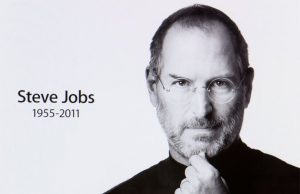 Danish Bhatti: You don’t need a reason anymore exactly once you have made your mind, doesn’t ,mean you drop the reasons. So then another thing I heard was this interview I recently heard from a guy forgot his name. He is a designer I think like industrial designer and he has a very successful practice and he worked with Apple in the early Apple days and the first Macintosh 1980s and he left Apple 1985. What did he say when before Steve Jobs was fired. I think at 19 wisely or something. No this is it. And nobody knows who’s back. So it’s an international designer. So the podcast person you know I listen to a lot of podcast on design these days is my becoming my focus and passion. So the lady asked him what was it like working with Steve Jobs. And he said something is like you know Steve had some good idea some bad ideas you know some great ideas I’m not so good at ideas but he would get stuck on something you know it would take a lot of effort on your point, you have to really show him that he’s wrong before he really let it go.
Danish Bhatti: You don’t need a reason anymore exactly once you have made your mind, doesn’t ,mean you drop the reasons. So then another thing I heard was this interview I recently heard from a guy forgot his name. He is a designer I think like industrial designer and he has a very successful practice and he worked with Apple in the early Apple days and the first Macintosh 1980s and he left Apple 1985. What did he say when before Steve Jobs was fired. I think at 19 wisely or something. No this is it. And nobody knows who’s back. So it’s an international designer. So the podcast person you know I listen to a lot of podcast on design these days is my becoming my focus and passion. So the lady asked him what was it like working with Steve Jobs. And he said something is like you know Steve had some good idea some bad ideas you know some great ideas I’m not so good at ideas but he would get stuck on something you know it would take a lot of effort on your point, you have to really show him that he’s wrong before he really let it go.
John Bertoni: Right.
Danish Bhatti: Once he was stuck. He was just stuck. He was saying it in a neutral or maybe slightly negative way but I actually took it as a positive way. It kind of linked me to that idea that I had was that great people once they are stuck on an idea they’re just stuck on this idea. everybody can say you wrong it’s not going to work. This is horrible. This is an impossible and not doable. Nothing fazes them. Once they have decided they have decided that they’re not we are going to get it done. I don’t care if it’s impossible. I don’t care how hard, I don’t care if you know it’s like Elon Musk deciding that we should all be we should have a commercial travel to the moon. It was like are you stupid? are you crazy? you know he is stuck on that like you know eight years ago ten years ago when he said I’m going to make electric cars. Like that’s not possible. It’s like you need batteries the size of a room and that is like no I’m going to get this done.
John Bertoni: Did you just hear that Tesla went from 0 to 60 faster than all the other cars.
Danish Bhatti: No I had not. Just they broke the record now?
John Bertoni: Just in the last week or so. Can we take a break here I may need a break and then let’s continue.
Danish Bhatti: Sure.




